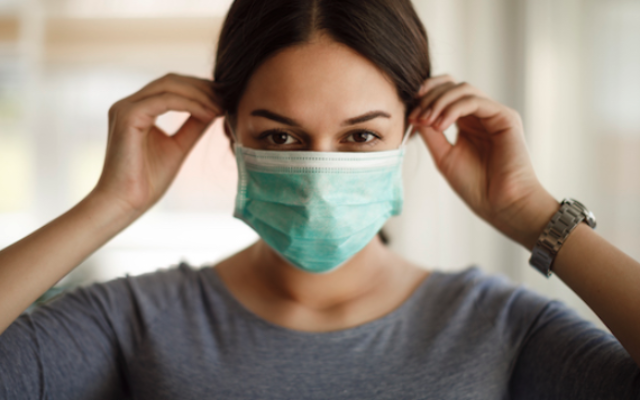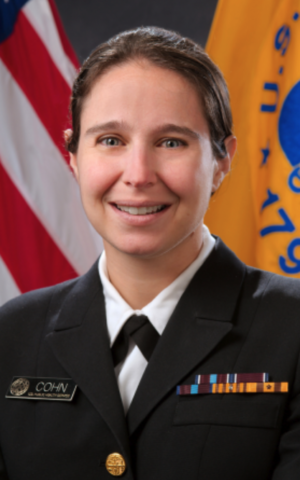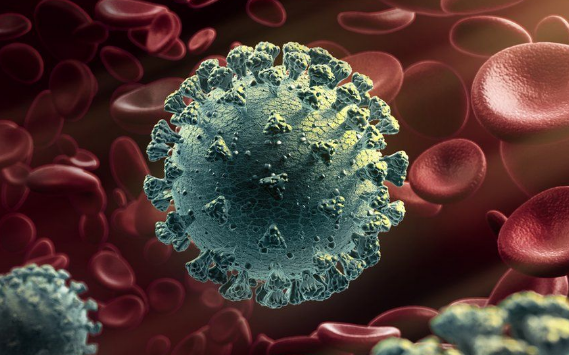CDC Director Offers Latest Vaccine Advice
Dr. Amanda Cohn, a top medical director at the Centers for Disease Control and Prevention in Atlanta, addresses slow pace of inoculations.

One of the top medical officers of the Centers for Disease Control and Prevention in Atlanta predicted that it may take until September before most Americans who want the COVID-19 vaccine will get it.
Dr. Amanda Cohn told a conference call of the Maimonides Society of healthcare professionals at the Jewish Federation of Greater Atlanta Feb. 3 that even that distant target date would depend on the availability of an adequate supply of vaccine and keeping up the present pace of inoculation.
Cohn is a medical director of the government agency and heads up the CDC’s advisory committee on immunization practices. She pointed out that while late summer is the vaccination goal public health officials have in mind, the timetable could speed up if two vaccines from Johnson & Johnson and Novavax are approved soon.

“If we have these additional two vaccines come on board and we have more doses and one of them is the Johnson & Johnson vaccine, which is a single dose, then we actually would have enough to get most people vaccinated before the beginning of the summer.”
Latest CDC figures show that Americans are being vaccinated at the rate of about 1.5 million daily with over 3 million a day at peak times. Still, the vaccine program is generally seen to have suffered from a slow start and widespread confusion by the public.
Nonetheless, the CDC doctor who has been involved in implementing the immunization program most of her 16-year career at the agency does not minimize the difficulty of vaccinating the hundreds of millions of Americans who are eligible for the shots.
“This rollout was unprecedented. They were new vaccines. We didn’t know how many doses we were going to have or even how the vaccines were going to work until really quickly, up until a couple of weeks before we rolled them out. The storage and handling of these vaccines is complicated, so we can’t use our normal systems. And most importantly, we built this vaccine out in the middle of the biggest surge that we’ve had in this pandemic. It was incredibly challenging at the local and state level to get vaccines in arms.”
As of the third week in February, statistics compiled by the CDC show that over 11 percent of Georgia residents have had at least one dose of the two-dose regiment and over 5 percent two doses, which puts the state 47th on a state-by-state ranking. Cohn said that getting vaccinated, even if you are in a priority group, is not easy in Georgia. She counseled that the best advice at present is to sign up on the Georgia Department of Public Health website, https://dph.georgia.gov/covid-vaccine.
“The wait list is overwhelming. It is. There’s well over a million people on the wait list in Georgia to get vaccinated. But more vaccines are coming. I know that it’s hard to be patient. People are scared. They want to get the vaccine. They want to get protected. But put yourself on the wait list and then try to be patient.”
Cohn also is concerned about the virus variants that have developed in the United Kingdom and South Africa. Research on the medical website, medRxiv, released Feb. 7 looked at the spread of the U.K. variant known as B.1.1.7 between December and January.

The research maintained that the variant is roughly 35 percent to 45 percent more contagious, and that new cases of the mutation in the United States are doubling every 10 days.
The authors of the study urged public health officials to speed up vaccinations to confront the variant. They predicted that it could be the most common strain of the COVID-19 virus by late March.
That’s part of the reason Cohn urged everyone to continue to wear their masks, maintain social distancing and wash their hands, even if they have been fully vaccinated.
“I think that what we need is to slow the spread so that we can vaccinate more people,” she said. “Even if these variants escape, it doesn’t mean that the vaccines won’t be protective. It means that they may not be as highly effective. So what we need to do is slow the spread until we can get people vaccinated. And frankly, the more time a virus spreads, the more opportunities it has to mutate, so the less it spreads, the better off we are.”



comments